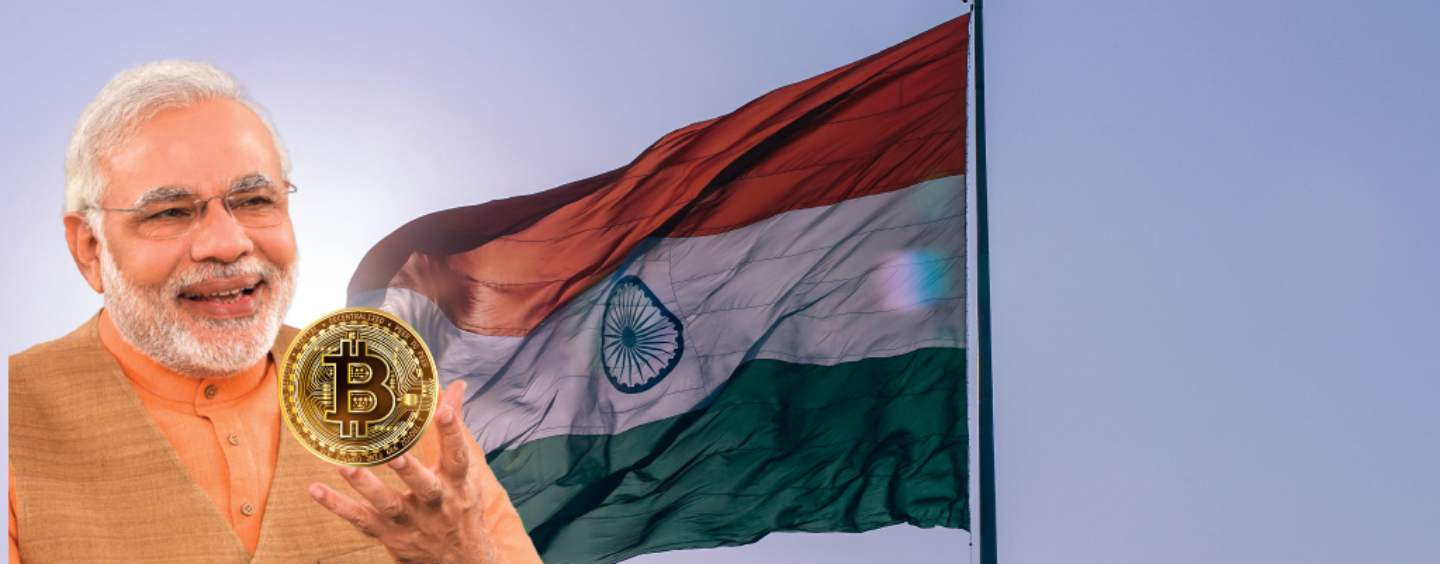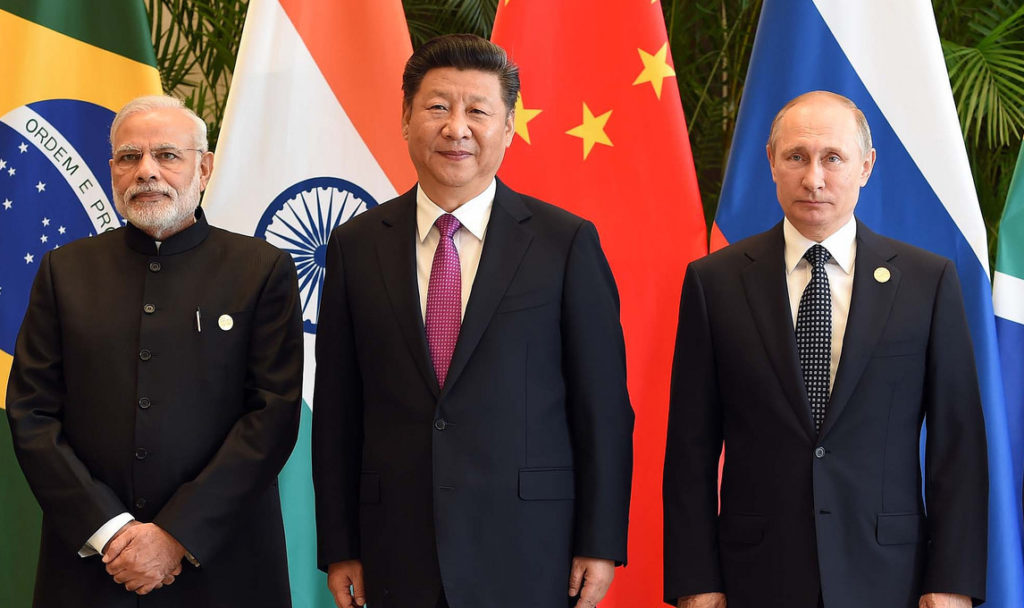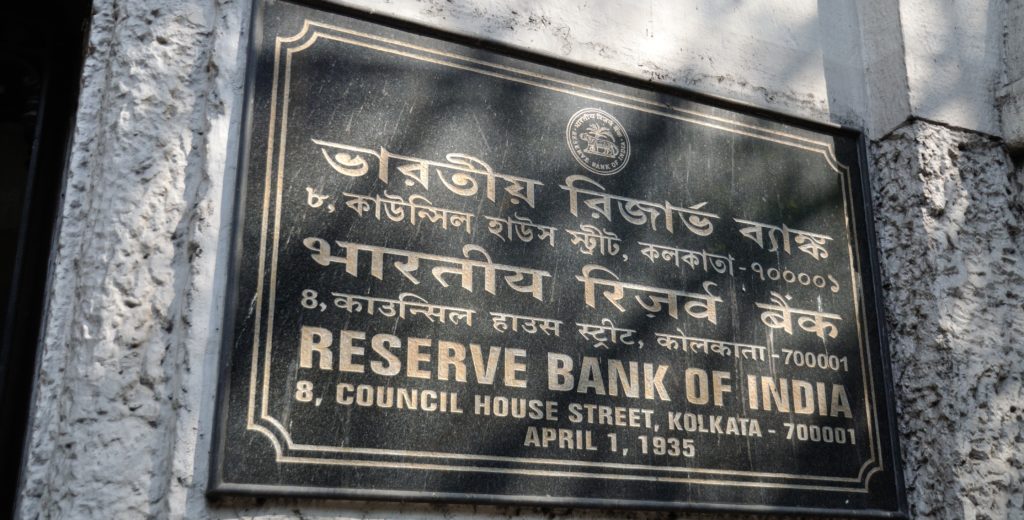
Will India Emerge as The Next Blockchain Hub of The World?
by Fintech News Singapore January 17, 2019Is India emerging as a blockchain trendsetter? The sector has been moving in fits and starts in what’s becoming the world’s sixth-largest economy. Despite a bearish outlook on cryptocurrencies from regulators, progressive Indian states and companies are charging ahead in exploring the applications of blockchain technology.
The intensity of blockchain disruption in India and the potential future that it holds, has the ability to skyrocket at the same time allowing other innovators to tap into the country.
The government is already deep-diving into blockchain for land registry, judicial records, e-stamping, transportation, DBT ( Direct Benefit Transfer) and much more.
For example, India’s Union Cabinet led by Prime Minister Narendra Modi said it would allow the nation’s Export-Import Bank (Exim Bank) to conduct research on distributed ledger and blockchain technology. This pilot would be a collaboration with banks in the BRICS economic bloc, of which India is a member, alongside Brazil, Russia, China and South Africa.

This government-approved bank’s blockchain research, announced last September, seems to be a move to further India’s goal towards developing a digital economy.
The country’s central Bank formed a new unit devoted to researching regulatory frameworks for blockchain, cryptocurrencies and other technologies.
“As a regulator, the RBI also has to explore new emerging areas to check what can be adopted and what cannot,”
a source was quoted saying.
Private companies are seeking to integrate blockchain platforms in to their businesses. Recently, oil and gas conglomerate, Reliance Industries, owned by the nation’s richest man, Mukesh Ambani, has turned to blockchain for trade finance.
The live transaction was said to be conducted in collaboration with US-based global chemical distributor Tricon Energy. Additionally, Dell EMC India announced last September, its plans to invest in emerging technologies, including blockchain.
Private banks such as ICICI has enlisted more than 250 corporates to undertake domestic and international trade finance transactions using the bank’s blockchain platform. The bank boasts a successful completion of blockchain-based cross-border transaction for trade finance with Emirates NBD in 2016.
But ICICI isn’t the only bank in the region pushing ahead with blockchain. Indian banks such as Yes Bank, Axis are progressing ahead in blockchain innovations. For example, Axis bank announced to use Ripple’s network for cross-border transactions. The bank has previously tested for new client-facing services.

Cryptocurrencies, on the other hand, is still in its early days and the government is taking a pragmatic view on crypto regulations. This is possible because many scam projects have unfortunately given crypto a very bad name.
Last month, the government set up an interdisciplinary committee to investigate cryptocurrencies, not in favour of an outright ban, a news report suggested. This comes after the Reserve Bank of India, the country’s central bank, prevented domestic banks from providing services to cryptocurrency firms such as exchanges.
Market Steadily Gaining Momentum
All this amounts to early signs that blockchain is gaining momentum in India in both in the government and the private sectors.
For example, there has been a tremendous support from the government and regulators towards making the Indian economy, a cashless digital economy. The government in January 2016, launched the Startup India initiative and has dedicated a US$1.5 billion fund to support startups.
In January 2018, an Indian government policymaking body NITI Aayog said that it is eyeing the potential applications of blockchain technology by developing proofs-of-concept in sectors including education, health and agriculture, an Indian daily reported.
Also, state governments such as the government of Maharashtra have revealed five to six pilot projects to test blockchain technology. The state government of Andhra Pradesh is another leading blockchain explorer. With a vision to build a community of blockchain startups in the region, the state has been partnering with various blockchain talent pool to boost local blockchain ecosystem.
In addition, a North-East state of Assam is seeking to leverage blockchain to build dApps for internal government functions as well as citizen-facing applications.
“With blockchain, we are presented with such an opportunity and we look forward to bringing a positive impact to the people of Assam,”
K.K. Dwivedi, IAS, the state’s Commissioner, Industries & Commerce Department & Managing Director, said last year.
The IT department of the Telangana state government recently signed a Memorandum of Understanding (MoU) with Tech Mahindra to build what they claim will be the country’s first “blockchain district”.
Besides, IT giant Tech Mahindra and Swedish blockchain startup ChromaWay have joined hands to build blockchain solutions for government agencies. This startup also collaborated with the state government of Andhra Pradesh to pilot a land registry ledger in October 2017.
What’s in Store For India’s Blockchain Scene in the Next 5 Years?
New technologies have always attracted enterprises and governments. Blockchain, already thriving in India, is seen as a green pasture for students and engineers to build their career on. This would mean that the nascent technology would open up more resources for newbies and existing professionals, thus offering tremendous job opportunities. Furthermore, these jobs are paid higher than usual tech jobs.
According to LiveMint report, this technology behind bitcoin is now the fastest-growing skill set demanded on job sites. Job growth rates to 2,000-6,000% and salaries for blockchain developers are 50 100% higher than regular developer jobs.
“Given these developments, India seems well positioned as a market for blockchain to flourish,”
Rama Iyer, a blockchain tech evangelist, and advisor told Forbes in an interview.
Furthermore, initial coin offerings (ICOs) have a widespread potential for startup funding, which can lead the country into a blockchain hub and a recipient of global capital inflows. With positive regulation, validation and adoption of blockchain technology, India can reach the stage of large-scale implementation, provided there is a structured approach, proper governance, ecosystem development, talent incubation, and budget allocation.







